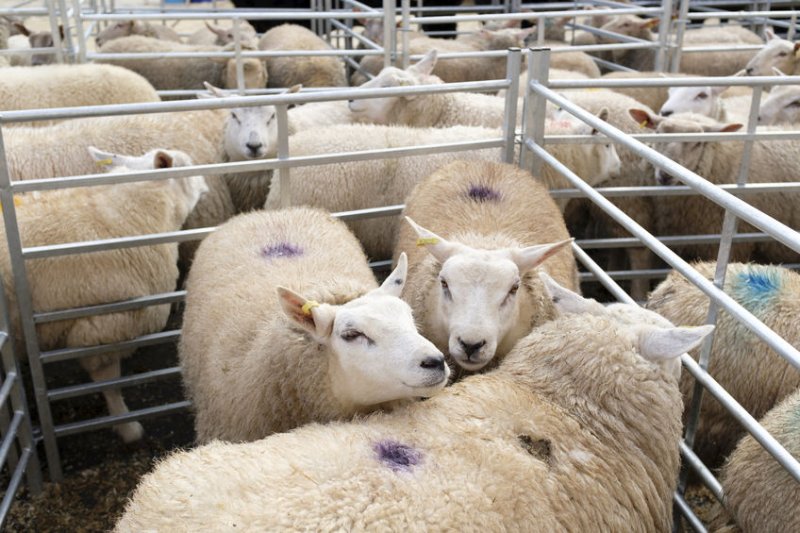
Farmgate prices for prime sheep have been some of the highest on record since the beginning of 2021 and some 20 percent higher than a year ago.
High prices are an indication of firm demand and weak supply, according to analysis by Quality Meat Scotland (QMS).
In the UK, slaughter data and auction market throughputs indicate a shortage of domestic supply.
January prime sheep slaughter volume was reported by Defra to have been down 18% and auction market throughputs since then continue to be lower than last year.
However, auction markets do report an increase in the proportion of prime sheep sold falling within the SQQ weight range.
Stuart Ashworth, QMS' director of economic services, said some of the reduction in kill may be a consequence of disruption on slaughter lines cause by Covid control measures.
Another contributing factor to recognise is that with a smaller UK lamb crop reported in the June 2020 census, and total slaughtering in the second half of 2020 experiencing little change from 2019, that there will have been a smaller carryover of hoggs into 2021.
“Nevertheless, the scale of shortfall in the January kill may suggest a combination of early deliveries during December, when the UK kill was unusually high, and a holding back of stock for the Easter and Ramadan market,” he said.
Offsetting the reduced availability of domestic sheepmeat in January and February is a reduction in export activity caused by the dual disruptions of Brexit and Covid.
“Brexit associated challenges over the health certification of exports and checks at ports needed since the beginning of January as well as the consequences of Covid control measures on demand in Europe have resulted in reduced export activity.
"French data for example suggests overall consumption of lamb in France in 2020 was 5% lower than in 2021 and there import requirements were lower,” Mr Ashworth said.
In comparison, New Zealand report much lower deliveries of sheepmeat into the UK and the EU during January and February.
“Two issues are contributing to this, the first is a lower slaughter volume during January and February and the second is the global disruption to container movements and changed shipping schedules caused by Covid-19 management measures," he added.
"This has led to increased shipping costs and delays in deliveries. Indeed, disruption to international trade has contributed to New Zealand farmgate prices trailing year earlier levels."
Ireland has also seen a reduced prime sheep kill since the turn of the year; by late February Irish prime sheep slaughter was cumulatively 6% lower than last year although in recent weeks it has come more in line with last year’s levels.
“However, the recent publication by Ireland of farm census data for December 2020 suggests their carryover of hoggs is little different from last year and so supplies may increase in the next few weeks.
"Nevertheless, the current tightness of supply is contributing to Irish farmgate prices for prime sheep at the end of February some 20% higher than a year earlier,” said Mr Ashworth.
Prime sheep farmgate prices are also more than 10 percent higher in Germany and the Netherlands.
France reported a more modest 7% year on year increase while prices are lower than a year ago in Spain and Italy.
These relative price movements and the extra administrative costs of exporting does suggest that at current farm gate prices prime sheepmeat exporting is less attractive than a year ago.
“Nevertheless, with Easter fast approaching and Ramadan beginning shortly after these two periods of historically firm consumer demand will continue to underpin prices in the short term,” Mr Ashworth said.
